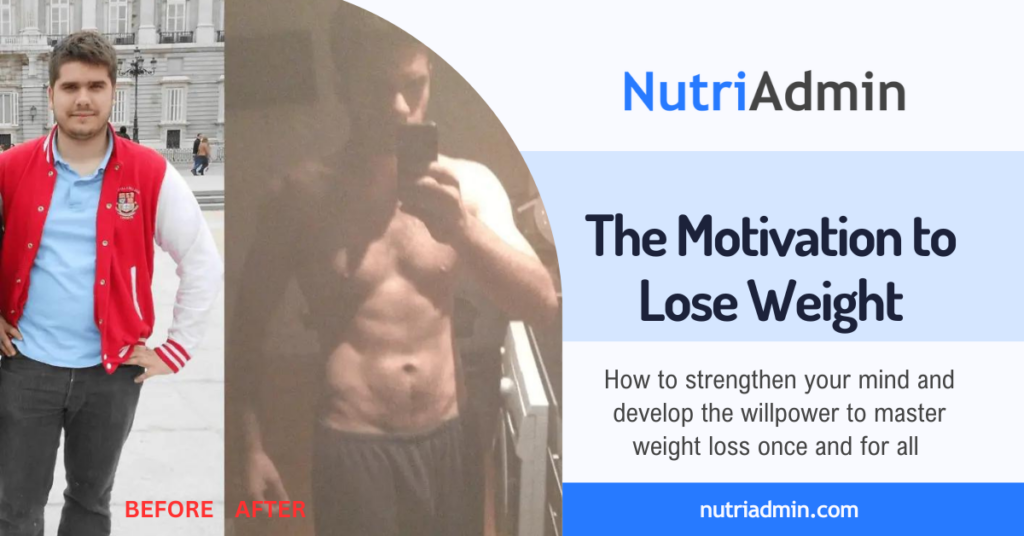Do you feel like you have the knowledge and expertise to help many people improve their health and well-being, but you have no idea how to reach them? Are you just starting out on your nutrition business and don’t know how to get clients? In this article, Diego, Co-founder of NutriAdmin, shares his insights on growing a business through marketing for nutritionists and dietitians. If you are looking for marketing for coaches and personal trainers then this guide is also useful. This is because there is a lot of overlap in the work and the way clients find you.
Diego holds a degree in Physics and a masters in Scientific Computing from Cambridge University. Like many of you, Diego and his co-founder, Magda, had no background in business or marketing when they started NutriAdmin back in 2016. Now, in its 7th year of operation, NutriAdmin has grown to 17,200+ registered users from around the world.
How did they achieve that? They did it by learning marketing mostly on their own, through a lot of trial and error. They also engaged in continuous learning about marketing trends. Having worked with thousands of nutritionists, dietitians, coaches and personal trainers over the years, Diego is well-versed in this niche. This comprehensive guide will give you an overview and fill in the gap in your knowledge about marketing.
- Relevance of Marketing for Nutritionists, Coaches, and Personal Trainers
- Defining Your Target Market
- How to get clients as a nutritionist through marketing?
- Assessing Effectiveness of Marketing Strategies
- Proven Marketing for Nutritionists, Coaches, and Personal Trainers Strategies
- Conclusion
- Watch on Youtube
- Frequently Asked Questions
Relevance of Marketing for Nutritionists, Coaches, and Personal Trainers
Firstly, let’s consider specialist vs business skills. Most nutritionists and dietitians will be experts in nutrition, and that will be their educational and professional background. Coaches and personal trainers are experts in physical fitness, exercise, and other holistic health aspects. However, that alone can not make a nutrition and wellness business successful. It takes a different skill set to thrive in business/private practice.

Marketing, in essence, is about connecting with your audience and showcasing the value you bring to their lives. Think of it as sharing your passion for nutrition and fitness in a way that resonates with others.
In many professions today, there’s a growing trend towards specialization. If you’ve studied nutrition or worked as a clinical nutritionist with a background in human nutrition from university, your education is likely shaped by specialists, academics, and researchers. These individuals provide valuable knowledge on how to address various health issues, from medical conditions to nutritional disorders. While armed with extensive knowledge about clinical practices and understanding nutrition-related conditions, expertise alone may not ensure a thriving practice or business.
According to Diego, obscurity stands as the biggest challenge for any small business. The issue many professionals face, including musicians or software developers, is that when you begin, hardly anyone knows about your services. The same holds for nutritionists, coaches, and personal trainers – having incredible knowledge is only part of the equation. The challenge lies in making your expertise known and accessible to those who need it.
Defining Your Target Market
Begin by defining the individuals you want to reach. Are you targeting busy professionals, parents, or fitness enthusiasts? Tailoring your message to your specific audience ensures that your efforts are both efficient and effective.

Like most marketers, your starting point should be a clear understanding of your ideal customer. This involves thinking deeply about who can benefit most from your nutritional expertise and tailoring your approach accordingly.
Consider the specificity of your ideal customer. In NutriAdmin, our marketing focus is on nutritionists, dietitians, coaches, and personal trainers. This specificity allows us to align our products and services with the needs of this particular audience.
The rationale behind this approach is simple – in a vast and competitive world, being specific sets you apart. It ensures that your offering is uniquely tailored to meet the needs of a particular group rather than being a generic solution that might get lost in the crowd.
Strategic Specialization
Perhaps you’ve already chosen a specialization for your nutrition practice, such as diabetes management, eating disorders, gut health, or weight management. Let’s consider the scenario where you specialize in helping individuals with diabetes. To maximize the impact of your services, take a step further by narrowing down your target audience.
Consider factors like geographical location, age group, gender, or even specific health conditions within your chosen specialty. For instance, you might tailor your focus to a particular age group within the diabetic population or address specific health concerns related to diabetes. The key here is to strike a delicate balance — be specific enough to stand out and resonate with your target audience, yet broad enough to ensure a viable market.
Reaching Your Target Market
Consider the reachability of your target market as a critical factor in the marketing strategy of your business. For instance, if you aim to specialize in children with eating disorders, it poses a unique challenge. Directly messaging children would be inappropriate and potentially illegal. In this context, you must navigate through the parents, the decision-makers. This situation applies not only to pediatricians but also to nutritionists specializing in infants or young kids.
Designing your marketing campaign becomes crucial. Instead of addressing the children directly, focus on appealing to their parents. Craft messages that resonate with mothers or fathers, addressing common nutritional concerns kids may face today and how your expertise can provide solutions.
The essence lies in understanding who your customer is and how they would find you. For instance, if your target audience includes individuals within corporations, tailor your message to align with their socioeconomic status and education level. Ensure your language is inclusive or relatable, avoiding anything that might alienate them.
Making a Client Persona
To guide you in defining your target market for effective marketing as a nutritionist, creating a client persona is a valuable tool. This visualization helps you gain a clear understanding of your ideal client, making it easier to tailor your services and communication strategies
This isn’t just about imagining your ideal customer; it’s about integrating this understanding into everything you create. It will be the basis to the content of your website, emails, and social media. Keep your entire customer in mind, shaping your message and approach to cater specifically to their needs.
Let’s break down the key components of creating a client persona and why each aspect is crucial:
Who They Are
Assigning a name and image to your persona humanizes your ideal client. It serves as a quick reference point, keeping their characteristics at the forefront of your marketing efforts.
For example, your target audience is women with PCOS. Let’s name her “Sophia,” a woman with PCOS, navigating a busy lifestyle while trying to manage her PCOS symptoms. We’ll use Sophia as an example in making a client persona.
What They Need
Understanding the needs of your ideal client is fundamental. As a nutritionist, this could range from weight management to specific dietary concerns or overall health improvement. By understanding and acknowledging their pain points, you can tailor your services to provide targeted solutions. Defining these needs ensures that your services directly address and fulfill the core requirements of your target audience.
Sophia’s needs may revolve around managing PCOS symptoms, balancing hormones, and achieving sustainable weight management.
Where to Find Them
Demographic information, such as age, gender, household income, education, occupation, and location, provides insights into where your ideal clients are concentrated.
Sophia is a working professional, aged 25-30, holding an undergraduate degree, and residing in the US. She maintains a household income ranging from $75,000 to $150,000.
What They Are Interested In
Recognizing shared interests enables you to create content that resonates with your audience beyond nutritional advice. If your ideal clients are interested in fitness, for instance, incorporating fitness-related content into your marketing strategy establishes a connection based on common interests.
Sophia is likely interested in holistic approaches to managing PCOS. Therefore, your marketing can focus on nutrition, lifestyle changes, and mental well-being.
Behaviors
Knowing the behaviors of your ideal clients helps tailor your approach to align with their routines.
- Health-Conscious Lifestyle. Sophia might regularly practice mindful eating, exercise, and prioritize her overall well-being to manage PCOS symptoms. Your nutrition services can include workout ideas. It can also emphasize personalized meal plans and strategies for mindful eating to align with her health-conscious behavior.
- Online Communities and Social Media. Given her age and tech-savvy nature, Sophia may actively participate in online communities. Furthermore, she takes time seeking advice and support from fellow women dealing with PCOS. She also enjoys watching fellow women on Instagram sharing their PCOS journey. In addition, she appreciates content that includes tips on how to improve PCOS symptoms. To leverage this, utilize social media or online platforms to share valuable nutritional insights, fostering a connection with her interests and online interactions.
- Healthy Recipe Exploration. Sophia may regularly explore and try out new healthy recipes tailored to her dietary needs. This reflects her commitment to maintaining a balanced lifestyle. You can offer meal plans with quick and easy recipes or involves meal prep that would suit her busy lifestyle.
Understanding these specific behaviors allows your nutrition services to strategically reach out to Sophia. Thus, it is important to know where she is in her health journey and provide valuable support aligned with her lifestyle.
Business Growth and Changes
In the initial stages, it’s crucial to be specific, focusing on a niche within your specialty to get started. Once you’ve optimized your presence and expertise in that specific area, there’s room to expand. You can potentially reach other related groups if deemed necessary.
For example, NutriAdmin initially focused on nutritionists and dietitians who are in need of a nutritionist software. As the business expanded, it became evident that coaches and personal trainers could also benefit significantly. Marketing efforts now include these professionals as well.
How to get clients as a nutritionist through marketing?
Attracting clients, whether online or offline, involves diverse strategies that cater to the unique needs of each business, considering the varying target markets. Diego, for instance, tested different marketing strategies which did not require any traveling. He systematically recorded results for each marketing strategy and identified what works best for NutriAdmin.

Currently, our focus lies on SEO, recognizing that many customers discover NutriAdmin through Google. We create free valuable resources, like this article, to address the need of nutritionists, coaches, and personal trainers to learn marketing. This helps them reach more clients and grow their business. The goal is to help them as well as spark their interest in NutriAdmin. This way they can hopefully explore how NutriAdmin can streamline their tasks and enhance efficiency.
In this section, we’ll provide an overview of different marketing strategies that can be used, whether you are a nutritionist, coach, or personal trainer.
Creating SEO Optimized Content
SEO, or search engine optimization, is the process of optimizing your website to rank higher in search engine results, particularly in Google. The ranking is determined by factors like relevance, quality, and user engagement. Google analyzes data to understand how users interact with your site. For instance, if someone searches for a “diabetes specialist in London” and finds your site, and then engages with it by spending time, making a purchase, or scheduling a call, Google recognizes your site as valuable for that specific keyword.
On the other hand, if visitors quickly exit your site, it signals a lack of relevance. Improving your knowledge in SEO for nutritionists as well as consistency and quality content are key to building SEO over time. Technical factors like keyword placement and fast website loading also play crucial roles. Ensuring your site aligns with these principles improves its visibility and ranking, ultimately attracting more visitors and potential clients.
Social Media
Social media marketing offers nutritionists, coaches, and personal trainers a dynamic platform to connect with their audience, share valuable insights, and build an online presence. By leveraging platforms like Instagram, Facebook, and Twitter, nutritionists and wellness professionals can engage with clients, share nutritional and fitness tips, and showcase their expertise. This not only enhances credibility but also allows for direct interaction, fostering a sense of community.
Different social media platforms for marketing
Each platform, from Instagram to YouTube, offers unique opportunities for engagement. Instagram, with its visual appeal, is ideal for sharing attractive images of food, recipes, and workouts. YouTube allows for longer-form content, enabling you to share in-depth insights and tutorials related to nutrition.
LinkedIn, geared towards professionals, offers a space to connect with potential corporate clients and share valuable articles. Facebook, with its vast user base, provides opportunities to create pages and groups to build communities around specific nutrition topics. Twitter’s brevity is suitable for short, impactful messages. TikTok and Instagram Reels are perfect for short, engaging videos, potentially reaching a broad audience.
Consistency, relevance, and understanding the unique dynamics of each platform are essential for success in social media marketing. As your audience grows, the impact of your content multiplies, helping you reach and connect with more potential clients.
Additionally, social media provides a space to promote services, share client success stories, and stay updated on industry trends. With strategic content and engagement, social media marketing becomes a powerful tool for nutritionists to broaden their reach, attract potential clients, and position themselves as trusted authorities in the wellness space.
Advertising
If you’re just starting a business and have limited resources, diving into advertising may seem daunting, especially given the potential expenses associated with it. However, advertising can be a powerful tool if used strategically. Platforms like Google Ads allow you to target specific keywords related to your nutrition services, ensuring that your ads reach individuals actively seeking solutions.
With Google Ads, you can set a budget and pay per click, making it more cost-effective. By carefully managing your ad spend and tracking conversion rates, you can determine the profitability of your campaigns. For example, if a certain keyword brings in customers at a cost that’s lower than the revenue those customers generate over time, the campaign can be considered successful.
On the other hand, social media advertising, such as on Facebook, LinkedIn, or Twitter, takes a different approach. Here, you can target audiences based on demographics, interests, and behaviors. While this allows for precise audience targeting, social media users may not be actively looking for your services at the moment they see your ad. It’s more about creating brand awareness and capturing potential customers’ attention over time.
Ultimately, advertising can be a valuable part of your marketing strategy, but careful planning, budgeting, and tracking are essential to ensure a positive return on investment, especially when resources are limited. As your business grows, you may find opportunities to expand your advertising efforts and reach a broader audience.
Remarketing
Remarketing is a powerful digital marketing strategy that allows businesses, including nutritionists, coaches, and personal trainers, to reconnect with users who have previously interacted with their website or content. The process typically involves placing a small piece of code, commonly referred to as a cookie or pixel, on your website. This approach involves displaying targeted ads to these users as they browse other websites or social media platforms.
For nutritionists, coaches, and personal trainers, remarketing is an opportunity to reinforce their brand, remind potential clients of their services, and encourage them to revisit the website or take a desired action, such as scheduling a consultation.
By staying visible to users who have shown interest, remarketing enhances brand recall and can significantly improve the chances of converting interested visitors into clients, making it a valuable tool in the nutritionist and wellness professional’s marketing toolkit.
Here’s how remarketing works:
- Visitor Comes to Your Website: When someone visits your website, a cookie is stored in their browser.
- User Leaves Without Converting: If the visitor does not complete a desired action, like making a purchase or filling out a form, they leave your site.
- Remarketing Ads Displayed: As the user browses other websites or social media platforms, the remarketing platform (such as Google Ads or Facebook Ads) identifies them through the stored cookie.
- Targeted Ads Shown: The platform then displays targeted ads to these users, encouraging them to return to your site and complete the desired action.
Email Marketing
Email marketing is a crucial strategy that revolves around building and maintaining an email list. One effective way to do this is by providing valuable content such as blogs and articles to your audience and asking for their permission to receive more via email. This can be facilitated through various software platforms like Drip or MailChimp. As your email list grows, you can regularly engage your audience by sending newsletters, sharing links to your videos on platforms like YouTube or TikTok, and offering promotions or special offers.
However, it’s important to remember that your audience is composed of individuals who likely receive a multitude of emails. To prevent your emails from being overlooked or marked as spam, it’s crucial to tailor your content to their interests and needs. Relevance is key, as sending irrelevant or excessive emails can lead to unsubscribes.
Building an email list
Building an initial email list can be challenging. However, the key is to start collecting emails and store them in a platform that meets your needs. You can opt for a free or cost-effective service suitable for small volumes, with costs scaling as your email list expands.
Integrating email marketing with other distribution channels, like social media, is a powerful approach. For instance, you can encourage your Instagram followers to join your mailing list, and reciprocally, your newsletters can promote your social media channels. This synergy ensures that audiences from various channels can seamlessly convert between platforms over time.
You can read our email marketing for nutritionists article for more detail on this marketing strategy. This article is also applicable as a marketing strategy for coaches and personal trainers.
Partnerships
Partnerships can be a valuable strategy for expanding your reach and gaining clients. Collaborating with individuals or businesses that share a similar audience but offer different services can lead to mutual benefits. For instance, nutritionists often form partnerships with doctors or general practitioners who may not have the expertise to provide specific nutritional advice to their patients. In such cases, doctors can refer patients to nutritionists, creating a symbiotic relationship.
Diverse approaches to establishing partnerships
Similarly, exploring partnerships with local shops selling supplements or nutritional products can be fruitful.
Setting up a referral system can be mutually beneficial. You recommend clients to these shops, and in return, they refer individuals seeking nutritional counseling to you, creating a win-win situation.
Another way is to partner with your local gym. You can gain access to a pool of individuals already interested in fitness and wellness. For nutritionists and dietitians, you might offer nutrition consultations, workshops, or special promotions exclusively for gym members. This way you can provide a valuable service while expanding your client base. This collaboration allows you to tap into a targeted audience passionate about health, making it a win-win for both you and the gym.
The key to successful partnerships lies in identifying entities with a shared audience but non-competitive services. Whether supplement companies, doctors, or influencers, reaching out for collaborations can open new avenues for client acquisition. While not every attempt may succeed, initiating conversations often leads to fruitful arrangements benefiting all parties.
Follow Up
Following up is not really a marketing strategy but it is a crucial concept in sales and client acquisition. It’s essential to understand that many individuals may express interest but might not take immediate action due to various reasons such as busyness or timing. Successful salespeople emphasize the importance of consistent follow-ups.
People are busy, and despite initial interest, they might not find the right moment to commit. Following up, even multiple times, is about being persistent while maintaining a respectful and diplomatic approach. It’s not about being pushy but demonstrating commitment, care, and a genuine desire to help.
In practice, effective follow-ups involve sending additional emails, making follow-up calls, or using other communication channels. Moreover, the frequency of follow-ups can be adjusted based on feedback and the nature of the interaction. While it’s crucial not to overwhelm potential clients, finding the right balance ensures that your offer stays on their radar.
How professionals handle follow ups
Experienced sales professionals stress that a significant portion of potential sales is lost because people fail to follow up. The fear of rejection or concern about bothering individuals can hinder the follow-up process. However, the reality is that most people appreciate the effort. They see it as a sign of competence, and respect the persistence.
Using various angles in your follow-up messages, such as offering assistance in different areas, can also be beneficial. Additionally, providing an option to unsubscribe or expressing understanding if the individual is not interested is ideal. It demonstrates respect for their time and preferences.
Automating certain aspects of the follow-up process can make it more efficient, but the personal touch and genuine interest in helping the client should remain central. Remember, the goal is to keep the conversation alive until the individual either says yes or no. Following up is not only about closing a sale but also about building trust, maintaining reputation, and offering ongoing support and accountability to clients.
Word of Mouth
Word of mouth is a powerful and organic marketing strategy that relies on people sharing their positive experiences with a particular business, product, or service. In the context of a nutrition and fitness business, it means that satisfied clients become brand advocates, voluntarily recommending your services to friends, family, and colleagues. This form of marketing is based on trust and personal connections, making it highly influential.
To effectively leverage word of mouth as a marketing strategy, nutritionists, coaches, and personal trainers should concentrate on consistently delivering excellent services, surpassing client expectations, and building strong relationships. Happy clients are more likely to share their positive experiences with others, leading to a natural and authentic promotion of your business. Another way to improve the chances your message spreads by word of mouth you should actively encourage testimonials, reviews and referrals from happy customers. Offering referral bonuses or promotions can further incentivize clients to actively participate in spreading the word, creating a ripple effect that expands your client base.
Other ways to market products or services
There are other marketing strategies that some marketers employ. However, they may not be as relevant for most nutritionists, coaches, and personal trainers. For example, cold emails or offline marketing strategies like cold calling, and traditional methods like putting up billboards. While not the primary focus for wellness professionals, it’s essential to be aware of these methods as they are utilized in various industries.
Assessing Effectiveness of Marketing Strategies
The key is to try different strategies and record their results. Create a spreadsheet with columns for each platform or method (Facebook, LinkedIn, Twitter, YouTube, blog posts, SEO, etc.). Track metrics such as the time invested in learning, daily content production, long-term expected value, and the number of customers acquired. Over time, you’ll notice patterns and preferences, revealing where your efforts yield the best results.
It’s crucial to assess the effectiveness of each strategy based on your efforts and the engagement you receive. For instance, if you’re investing a significant amount of time on Twitter with minimal returns. On the other hand, you’re experiencing substantial growth on YouTube. It would make sense to focus more on the latter. Your natural talents and preferences will likely guide you toward channels where you excel, and your audience is more receptive.
In marketing and business, testing various strategies is an ongoing process. Once you identify what works well, it’s advisable to double down on those efforts. Additionally, word of mouth is a potent marketing strategy that naturally occurs when your services are excellent. Satisfied customers are likely to recommend your services, so ensuring client satisfaction is a crucial aspect of any business. You can further encourage recommendations through referral bonuses or promotions. However, the primary goal is to provide quality services that make your customers happy.
Proven Marketing for Nutritionists, Coaches, and Personal Trainers Strategies
At NutriAdmin, we have a large audience of nutritionists, coaches, personal trainers, and wellness professionals. We have sent our users a short survey asking them what marketing strategies work for them. All of the marketing channels mentioned above were popular options amongst the respondents. This validates they can be good ideas for your own practice or business.
Another common response we received was, “I am starting out and don’t know anything about marketing”. This is precisely why we are writing this article as an introduction and we hope it will help.
The strategies outlined above were the most popular. However, some other notable channels that our audience has mentioned work for them include:
- Corporate clients. Get a large corporation as a client that will offer your services to their employees as a work benefit.
- Directories. Get listed in a directory where clients look for nutritionists, such as Nutritionist Resource.
- Local talks, presentations, and classes. You can showcase your expertise, sharing valuable information about nutrition to establish yourself as a knowledgeable professional. Additionally, these events provide an opportunity to connect with potential clients, answer their questions, and build trust.
- Google Business Profile. Creating this enhance your visibility when potential clients search for a nutritionist, personal trainer, or a professional in your field.
Conclusion
Starting a nutrition business means you need to tell people about it so you can get more clients. You might not have learned much about business or marketing in your degree, but that’s okay. This guide provides insights on effective marketing for nutritionists, coaches, and personal trainers aiming to grow their business.
Use online strategies like social media, content creation, and email marketing to connect with potential clients. Experiment with channels, track results, and focus on what resonates with your skills and audience.
Additionally, building partnerships, leveraging word of mouth, and consistent follow-ups contribute to nutrition business success. Staying informed about the latest research, learning marketing techniques, and seeking guidance from experienced professionals is crucial. It can enhance business visibility and foster long-term client relationships for sustained growth.
Watch on Youtube
You can watch this episode on Youtube in the link below. Make sure to subscribe to the NutriAdmin channel on Youtube to be notified when new episodes are published.




